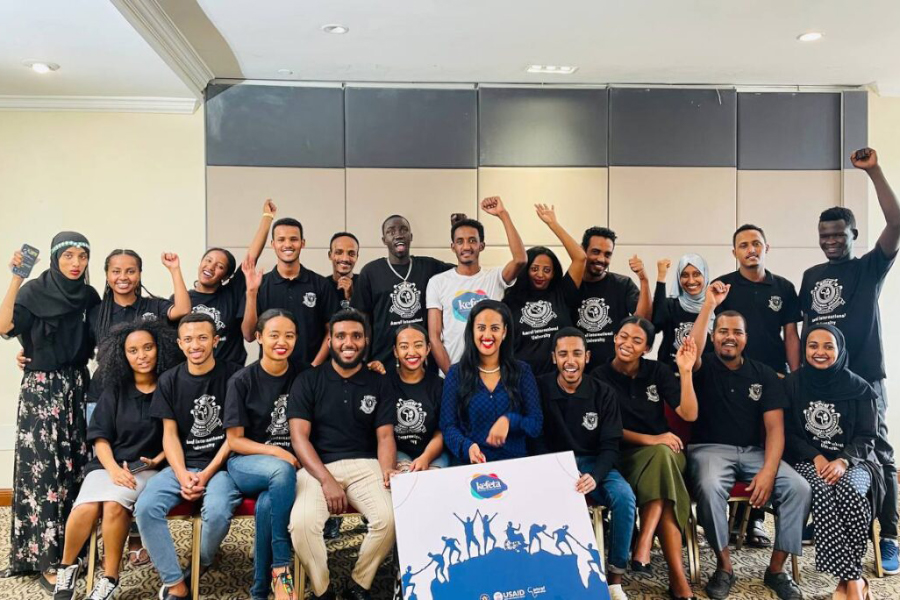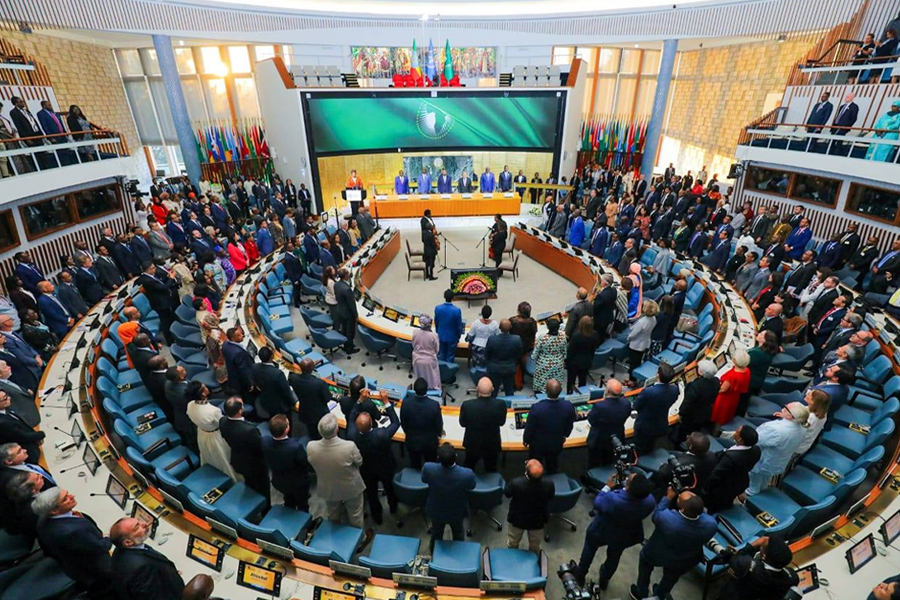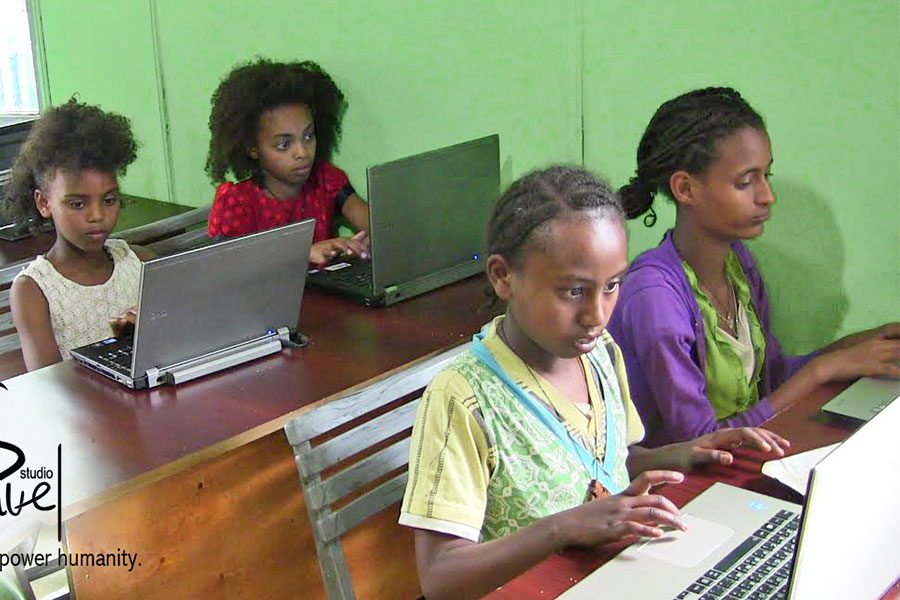
Radar | Jun 21,2025
Sep 10 , 2021
By Peter Singer
It was recently announced that I am the winner of the 2021 Berggruen Prize for Philosophy and Culture, an annual one million dollar award for “major achievements in advancing ideas that shape the world.” I am, of course, delighted that my work has been recognised as doing what I have always hoped it would do: change the world for the better. I am honoured to be joining eminent previous winners, of whom the most recent are Martha Nussbaum, Ruth Bader Ginsburg, and Paul Farmer, and I am thankful to Nicolas Berggruen for his interest and support – all too rare among wealthy investors – of philosophy and ideas.
Once the excitement of the news died down, I began to think about what I would do with the money. It did not take me long to decide to give it away.
First, my wife and I recognise that we have enough money to live comfortably and do the things that really matter to us, and we feel that our children are in a similar position. It helps, of course, that they live in Australia and, unlike much of the world, have safe drinking water, free or affordable health care, and free education for their children.
Moreover, I am well-known for arguing that just as it would be wrong to leave a child drowning in a shallow pond because you did not want to ruin an expensive pair of shoes, it is wrong to spend money on luxuries that could prevent children from dying of malaria or other common conditions that each year cause the deaths of millions of low-income children.
Given that, how could I justify using the prize money to buy luxuries for me or my family?
About a decade ago, I founded The Life You Can Save, a charity that spreads the message that it is surprisingly easy for most people in affluent countries to make a huge difference to those in extreme poverty in low-income countries. The Life You Can Save currently recommends 23 charities that have been independently assessed as offering extraordinary value for money in saving and improving the lives of people in extreme poverty.
I have decided to give half of the prize money to The Life You Can Save. I am doing this because over the last three years, each dollar spent by The Life You Can Save generated an average of 17 dollars in donations for its recommended nonprofits. (To forestall the cynics, I will add that I have never taken a cent from the organisation.)
But I am not giving all of the prize money to help people in extreme poverty. More than half a century ago, I learned that many of the animals whose flesh I was then eating were condemned to miserable lives crowded into the dim sheds of factory farms. I became a vegetarian and wrote "Animal Liberation," which in turn contributed to the rise of the modern animal rights movement. Factory farming remains a horror, ruthlessly exploiting tens of billions of land animals every year, and vast numbers of fish, too. Animal production is also a major contributor to climate change and adds to the risk of pandemics. I plan to donate more than a third of the money to organisations combating factory farming and recommended as effective by Animal Charity Evaluators.
There will still be some left, and for that, I invite readers to help me decide on the distribution, on the basis of the ethical approach outlined in "The Life You Can Save," which is available as a free e-book and audiobook on the organisation’s website, where you will be able to tell me what you think.
What about other options? Should I donate to organisations advocating a more rapid transition to net-zero greenhouse-gas emissions?
I thought of that but decided that the number of organisations working on that already reduced the chances of my contribution making a significant difference. Some thoughtful effective altruists urge us to focus on reducing the risk of extinction. But the uncertainties about how to achieve that objective are so great that I prefer to donate to projects for which the odds of accomplishing something positive are vastly higher.
I am confident that donating to save lives, restore sight, or enable a family to escape extreme poverty does more good than donating to a museum or opera. Other comparisons are more difficult.
How does saving a million hens from lives crammed into bare wire cages rank against lifting a dozen families out of extreme poverty?
In the end, there are several causes that would be good to support. I can claim no more for mine than that they are among the best available.
PUBLISHED ON
Sep 10,2021 [ VOL
22 , NO
1115]


Radar | Sep 29,2024

Radar | Oct 27,2024

Verbatim | Aug 01,2020

View From Arada | Jan 03,2021

Radar | Jan 27,2024

My Opinion | 132105 Views | Aug 14,2021

My Opinion | 128507 Views | Aug 21,2021

My Opinion | 126435 Views | Sep 10,2021

My Opinion | 124046 Views | Aug 07,2021





Dec 22 , 2024 . By TIZITA SHEWAFERAW
Charged with transforming colossal state-owned enterprises into modern and competitiv...

Aug 18 , 2024 . By AKSAH ITALO
Although predictable Yonas Zerihun's job in the ride-hailing service is not immune to...

Jul 28 , 2024 . By TIZITA SHEWAFERAW
Unhabitual, perhaps too many, Samuel Gebreyohannes, 38, used to occasionally enjoy a couple of beers at breakfast. However, he recently swit...

Jul 13 , 2024 . By AKSAH ITALO
Investors who rely on tractors, trucks, and field vehicles for commuting, transporting commodities, and f...

Jul 12 , 2025
Political leaders and their policy advisors often promise great leaps forward, yet th...

Jul 5 , 2025
Six years ago, Ethiopia was the darling of international liberal commentators. A year...

Jun 28 , 2025
Meseret Damtie, the assertive auditor general, has never been shy about naming names...

Jun 21 , 2025
A well-worn adage says, “Budget is not destiny, but it is direction.” Examining t...

Jul 13 , 2025 . By YITBAREK GETACHEW
The Addis Abeba City Revenue Bureau has introduced a new directive set to reshape how...

Jul 13 , 2025 . By BEZAWIT HULUAGER
Addis Abeba has approved a record 350 billion Br budget for the 2025/26 fiscal year,...

Jul 13 , 2025 . By RUTH BERHANU
The Addis Abeba Revenue Bureau has scrapped a value-added tax (VAT) on unprocessed ve...

Jul 13 , 2025 . By NAHOM AYELE
Federal lawmakers have finally brought closure to a protracted and contentious tax de...